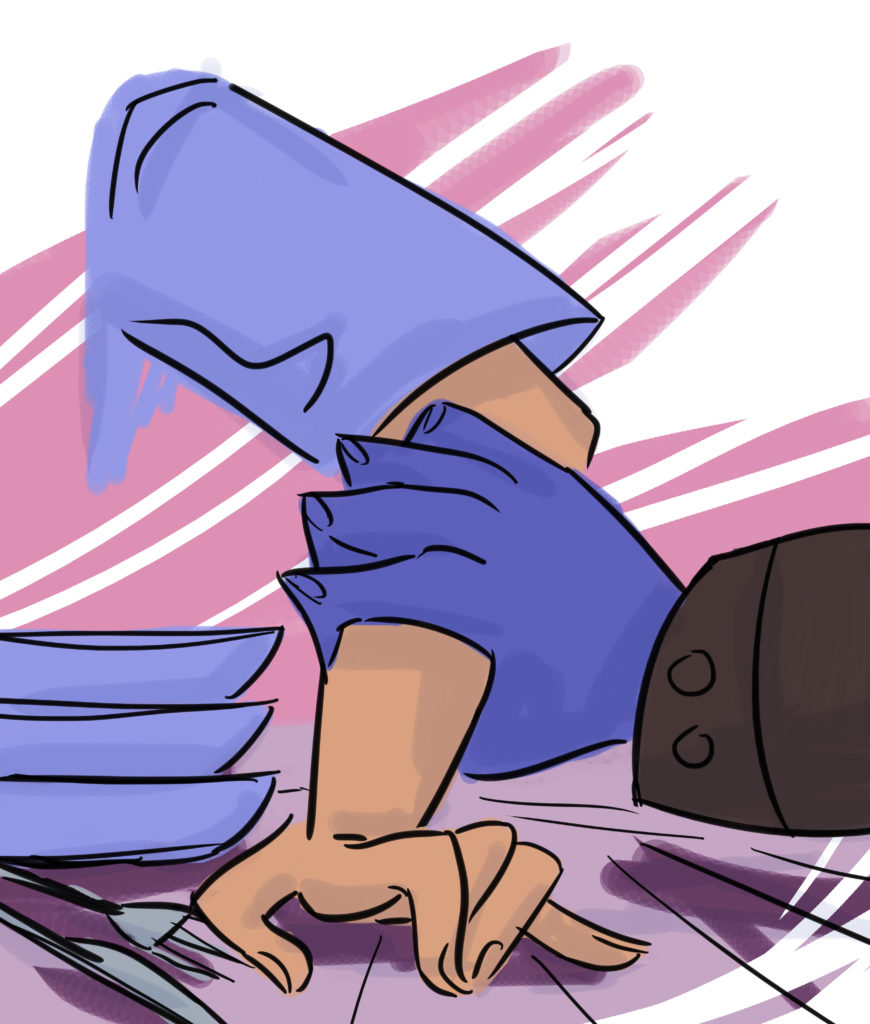
Last December, I, [Adam Mofid,] had the opportunity to speak with a former Paresky Commons employee during a Lyft ride from campus to Boston Logan Airport. She recognized me as a student as soon as I entered the car, and we had an eye-opening conversation. I exited the car with a newfound interest surrounding the treatment—or perhaps mistreatment—of Paresky workers.
If there has been any mistreatment of Paresky workers, our school would not be alone. In recent years, students at elite universities such as Yale, Georgetown, and New York University have run into ethical concerns surrounding the treatment of food service workers. These schools have something significant in common with Andover: we all contract our dining services to Aramark, a large American food service provider primarily serving prisons and schools. Though we may rarely see the Aramark logo, they are an integral part of Andover’s operations.
Aramark is notorious for labor law violations and employment discrimination. The company has been fined more than 11 million dollars across more than 100 separate cases since 2000. Moreover, Aramark has been part of a variety of scandals including firing employees for reporting unsanitary food conditions and feeding inmates substandard, spoiled food. According to “The Cavalier Daily,” maggots were found during food preparation in four correctional facilities, with further allegations of serving prisoners dog food, worms, and scraps of food.
In addition to these various alleged illegal practices, Aramark is no stranger to corporate depravity. “The Huffington Post” named it as one of the ten U.S. companies that provide the least pay for employees. This is even more problematic given the fact that the Aramark CEO, Eric Foss, was paid 32.4 million dollars in 2014 alone. Each day Foss worked, he earned nearly five times what most of his employees make in a year. With the cost of living rapidly increasing throughout much of America, most Aramark employees struggle to make ends meet.
The unfortunate reality is that it is often financially convenient to turn a blind eye to immoral practices such as Aramark’s. However, if we are to stay true to our school’s alleged values, we cannot continue to rely on Aramark and similarly unethical corporations. Given Andover’s record of promoting equality and social justice, our contract with Aramark is at best perplexing, and at worst simply hypocritical. Our school values are not limited to the student body—they exist to guide our community, and should be extended to faculty, employees, and a host of other individuals who shape our experience at Andover.
This dilemma is not unique to Andover. In recent years, students at institutions such as Georgetown University, Barnard College, and New York University have protested and boycotted Aramark. Notably, Yale University and Hampden-Sydney College have taken clear and decisive action by terminating their contracts with the company. Realizing the hypocrisy that these contracts represented, they chose to fully eliminate them.
In 2016, a large group of American University (AU) students protested the mistreatment of workers by Aramark on their campus. This was sparked by the unlawful termination of Ana Ebanks, a Honduran immigrant who worked for Aramark while studying at AU’s Washington College of Law. When Ebanks showed up late for work as a result of one of her classes running long, she was fired. AU students took to social media, spreading her story with #Justice4Ana. We should not wait for an incident of this nature to happen at Andover. Although Andover has a keen sense of outward justice (even sponsoring buses for students to attend protests in Boston), I believe it is our duty to also look inward with the same awareness of injustice. If we are to not only espouse but enact our school values, we must eliminate unethical practices from our campus, and support businesses whose actions align with our values.
Adam Mofid is a three-year Upper from La Jolla, Calif. Contact the author at amofid20@andover.edu.
Andrew Stern is a four-year Senior from Los Altos, Calif. Contact the author at astern@andover.edu